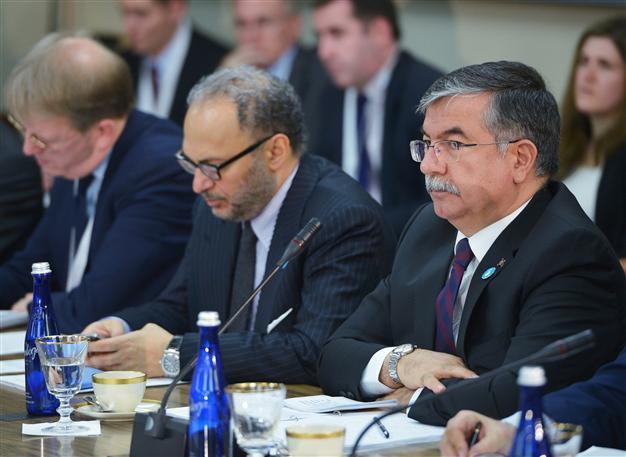Turkey to go ahead with non-NATO-integrated missile defense
ANKARA - REUTERS

AFP Photo
Turkey’s new defense missile system, for which Ankara is in talks on a $3.4 billion deal with a Chinese company, will not be integrated with one used by NATO, Defense Minister İsmet Yılmaz has said.Ankara will use the long-range system without integrating it with NATO’s system, Yılmaz said in his elaboration on the issue, which came in response to a parliamentary question filed by an opposition deputy.
Turkey originally awarded the tender to China Precision Machinery Export-Import Corporation (CPMIEC) in 2013, prompting U.S. and NATO officials to say the deal could raise questions over security.
Turkey later said it was in talks with France on the issue. However, in his written response to the question filed in late December 2014 by main opposition Republican People’s Party (CHP) İzmir deputy Aykut Çıray, Yılmaz said no new bids had been received.
“The project will be financed through foreign financing. Work on assessing the bids has been completed and no new official bid has been received,” the minister said, in his response released by Çıray’s office Feb. 19.
“The system in question will be integrated with the national system for Turkey’s defense and will be used without integrating it with NATO,” he added.
Eurosam, which is owned by Franco-Italian missile maker MBDA and France’s Thales, came second in the tender.
As early as September 2013, shortly after Yılmaz announced after a top defense industry meeting that the contract for the construction of the long-range air and anti-missile system had been awarded to CPMIEC, officials and industry sources told the Hürriyet Daily News that the Turkish government’s decision to select a Chinese contender for the construction of the country’s first long-range air defense system may force Turkey into ending up with a “standalone” system with little or no integration with NATO assets like radars.
About half of Turkey’s network-based air defense radars have been paid for by NATO and are part of the NATO Air Defense Ground Environment.
“Turkey can always decide to build a standalone system. But in that case, abstracting the air defense system from NATO assets would mean that Turkey will lose half of its radar capabilities,” one defense analyst said at the time.
Turkey would need interface data to make its own air defense architecture interoperable with NATO assets, primarily data on the Identify Friend and Foe system. This is top secret system and cannot be installed into any Chinese system.
The April 24 element
Earlier this week, senior officials told the Daily News that Turkey would refrain from selecting a winner for its disputed contract before April 24, the centennial commemoration of the 1915 killings of Ottoman Armenians.
“We have agreed with the government leaders not to rush to a decision any time soon,” one defense procurement official said. “A decision before April 24 is out of the question.”
A senior diplomat confirmed that Ankara first wants to see the U.S. and French positions on the “genocide claims” before awarding a sizeable contract “to a bidder potentially from one of these countries.”
“How these countries observe the centennial of the events [of 1915-1920] will be important input for our final decision,” he said.
















